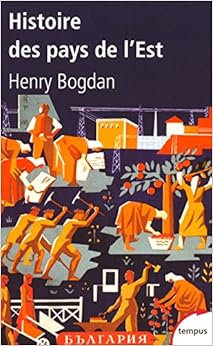IR - One Definition A Day: New World Order (NWO), (p. 371, Ref. 1)
In contemporary usage the phrase is associated with President George Bush who popularized it in the aftermath of the Iraqi invasion of Kuwait on 2 August 1990. Bush was anxious that the American reaction to this act of aggression should not be, or be seen to be a unilateral one, but should be viewed in the context of a re-emergence of collective security in the post Cold War era. In a speech to a joint session of both houses of Congress on 11 September 1990, President Bush outlined five 'simple principles' which should form the framework of an evolving international order: 'Out of these troubled times, our fifth objective - a new world order - can emerge: a new era - freer from the threat of terror, stronger in the pursuit of justice and more secure in the quest for peace, an era in which the nations of the world, East and West, North and South, can prosper and live in harmony.
As this quotation indicates, President Bush's conception of the NWO did not rise much above the rhetorical and it clearly lacked operational precision (what's new? which world? whose order?) but most analysts argued that at the very least the phrase referred to greater power cooperation, a strengthening of the United Nations and a more robust role for international law.
Many in the triumphalist West believed that with positive US leadership a new more stable and more just international order could arise out of the straitjacket of Cold War rivalry and hostility. Although the term is associated in the popular mind with the Persian Gulf war, the ideas it embodies are by no means new; calls for a 'new world order' have regularly accompanied significant events - usually the ending of general wars - in international relations. Similar calls were made in 1815, 1918 and 1945 - 46. In essence, these ideas are a re-embodiment of traditional idealist or Kantian liberal notions concerning inter-state cooperation, perpetual peace and harmony of interests.
The remarkably events in world politics between nineteen eighty-nine and the early 1990s led many to believe that international relations was now in a period of profound transformation. The collapse of communism in Eastern Europe, the demise of the Soviet Union, the end of the Warsaw Pact, the unification of Germany and the ending of apartheid in South Africa were events that encouraged the idea that a 'new age' of international relations had arrived. Among the elements associated with this supposed transformation are increased evidence of interdependence and cooperation, globalisation, integration, regionalism, the disutility of military force and importantly, a possible new role for the UN. Indeed, much of the discussion of a NWO centered on reforming the UN, strenghthening the machinery for collective action and laying down the groundwork for global governance.
For optimists therefore the 1989-91 period marked a watershed in world politics, producing conditions of unheard of political, economic and military cooperation. Pessimists, (usually drawn from the realist/neorealist perspective) have taken a much less sanguine view. Indeed one analyst has suggested that the end of the Cold War has released long-repressed ethnic and communal conflicts on a global scale and that far from eradicating conflict altogether, the NWO will be characterized by a clash of civilization, of which the conflict in ex-Yuguoslavia is but a prelude. The proliferation of nuclear weapons accompanied by failed states, resource wars and environmental decay may in fact make the original Cold War something that 'we will soon miss' (Mearsheimer, 1990).
For realists NWOs are always false dawns since continuity not change is the fundamental feature of international relations. On this view, there are no grounds to assume that the future will be any better than the past.
View New International Economic Order (coming up)
(Source: Penguin Dictionary of IR)
About YourVietbooks.com
YourVietBooks is a collection of books on Vietnam for Readers who are interested in Vietnam's History, Culture, Language, Economy, or Business. Most titles are in English, but some are only available in French or Vietnamese. We can provide interested parties an accurate translation of some parts of the books for your research purposes. Translations are done by YourVietnamExpert's qualified and experienced translators. contact@yourvietnamexpert.com

